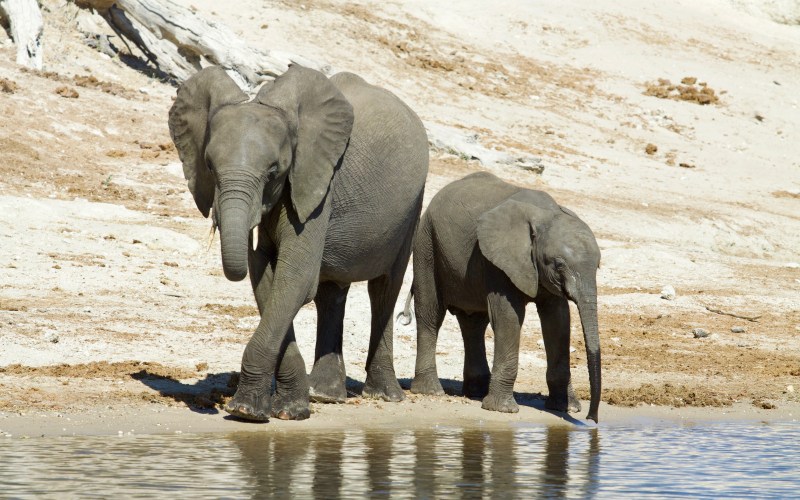Villagers in Mangwe district, Matabeleland South are living in fear owing to acute water shortages that are forcing them to compete for the resource with dangerous wild animals, particularly elephants.
A visit to some of the outlying villages in the Mangwe district revealed that there were several reported incidents where elephants have trampled people to death, with the figure thought to be about 4 people since 2013.
A villager in Phakamani Village, Mr Joseph Moyo says he recalls the day when an elephant fatally trampled a local woman early this year.
“She met the elephants near the water source that we use often, unfortunately, this particular elephant charged towards her and run over her. Fear engulfed the whole community,” said Moyo.
He said the incident was reported to the Mangwe Rural District Council (RDC) officials who responded by launching a search for the troublesome jumbos which come from Shashi area near the Botswana border.
“They shot down the particular elephant and pushed the other ones further from the settlements,” said Moyo.
Another villager, Mrs Sibongile Dube said the reason why the animals come so close to their settlements is that they will be in search of water.
“Year after year they destroy our crops and vandalise infrastructure at our communal irrigation schemes because they now live close to us and drink from where we drink. It is very dangerous,” said Mrs Dube.
She said the destruction of crops by the wild animals at Vulindlela irrigation scheme has forced them to abandon all farming activities, and this is potentially exposing them to hunger.
“We are about to start our farming season, but we are not very hopeful because of the problem we have with the wild animals that disturb our crop out there in the fields,” said Mrs Dube.
Owing to limited water resources in the area, cattle are also dying, forcing local farmers to destock.
A village headman, Mr Thomas Ndlovu said the elephants were mudding the water forcing the weak cattle to get stuck in the mud while trying to drink.
“Those cattle that are too weak to get unstuck in the mud end up being trampled by the same elephants, causing further damage,” said Ndlovu.
In a perfect world, there would be compensation for these villagers who live near the wildlife, not just for the damage to their property and vulnerable proximity to the beasts, but also for their local ownership of one of Zimbabwe’s foremost resources.
The Communal Areas Management Programme for Indigenous Resources (Campfire), touted as a solution model to villagers affected by wildlife has not had the desired impact in Mangwe district.
The villagers say they know the acronyms of Campfire but have not realised its benefits so far and a villager, Mrs Silisani Mthombeni said the project should be at-least revived to cushion them from the losses they have incurred.
“We need to talk to our leadership about some of these challenges that are affecting our livelihoods so that we can make the lives of the people better,” said Mrs Mthombeni.
Chief Sangulube said water challenges would continue to affect Mangwe villagers as the water sources are running dry and the boreholes that cater for most villagers are far in between.
“While there are some boreholes, these are not enough and people in Newline Village are the most affected as they walk long distances to fetch water for domestic use.
“Villagers in Phathisanani are in a better position because their area is near Sansukwi River and the boreholes there are a bit sustainable,” said Chief Sangulube.
He said the boreholes alone cannot save the worsening water situation in Mangwe District hence the need for short term plans to service the existing dams.
“The two dams that we have in the area are also running dry and there is a need for long term plans to construct more so that water for domestic use is guaranteed while also at the same time domestic animals would have water,” said the chief.
He said the Campfire in his area needs a serious review, as it is “not properly structured,” at the moment.
“The RDC and other stakeholders including myself need to come together and review Campfire because the villagers are losing property and thereby being exposed to hunger and poverty.
He said some of the Non-Governmental Organisations working under his area have expressed similar concerns that villages are not necessarily benefitting from Campfire as the proceeds of the programme have not made an impact on development.
Mangwe lies in the drought-prone Matabeleland South province and consists of 17 rural wards and a population of over 60 000 people.
The district has also generally relied on wells and boreholes as water points apart from a number of dams dotted within the area.

